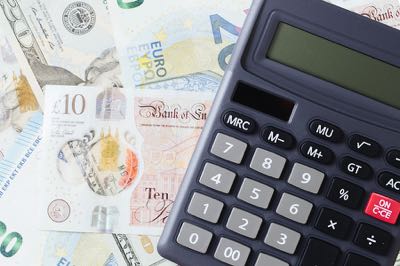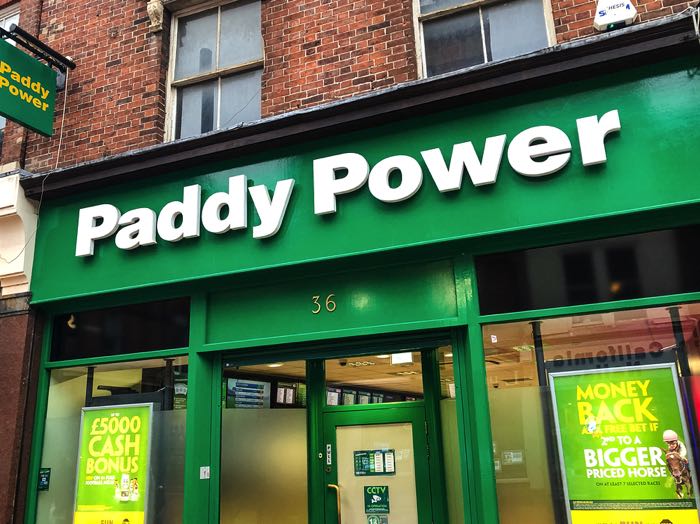 Cash out is a facility that allows you to close bets early in order to limit your losses or to take a smaller net win. It is being offered by more and more of the best betting sites and allows customers to have greater control over their bets, it gives them more options to manage whether they win or lose, and it is incredibly simple to understand and use. Here we take a look at what exactly cash out is and how it started, and we discuss some cash out tips and tactics. We also take a look at an even newer development, which is the partial cash out.
Cash out is a facility that allows you to close bets early in order to limit your losses or to take a smaller net win. It is being offered by more and more of the best betting sites and allows customers to have greater control over their bets, it gives them more options to manage whether they win or lose, and it is incredibly simple to understand and use. Here we take a look at what exactly cash out is and how it started, and we discuss some cash out tips and tactics. We also take a look at an even newer development, which is the partial cash out.
How Cash Out Started

Cash out has been added at more and more traditional bookmakers over the past year or so but essentially cash out, though not labelled as such, has always been a feature of betting exchanges. This was a major advantage of exchanges over traditional bookmakers: the ability to hedge bets, limit losses, lock in net wins and so on. Naturally enough, the best online bookies around looked at how they could offer a similar facility and so cash out was born.
As said, cash out can be used in a number of ways but probably the most common, and certainly the one that the adverts focus on, is to take a small net win if the bet is looking favourable. For example, you might cash out a treble after two successful legs or maybe you wish to cash out on a correct score bet if the game reaches 2-2 and you have backed it 3-2. Or perhaps you want to cash out a bet on a team to win when they are 2-0 up or you might even occasionally take a small net win before the game starts, if for example, team news has helped swing the odds in your favour.
How Does Cash Out Work?

By shawnwilliams4433, Bigstockphoto
Cash out is simply a means by which the bookie will buy your bet from you before it settles. At some bookmakers, as soon as you place a bet you will see a cash out offer. So, should you place a bet of £20 but immediately change your mind, you could cash out that bet and probably only lose around £1. Effectively, the bookie is buying your bet back from you and the value of the bet depends on what the odds were when you placed the initial wager and what they are now. Whilst your £20 bet may still stand to win £500, the cash out value is nowhere near that because the event is yet to start, the odds are effectively the same and so the bookie offers you around the same figure you initially staked.
Let’s say you let your £20 bet stand, perhaps on 3-2 in a game of football at 25/1. Now, if the game reaches 80 minutes and is still 0-0, there is next to no chance of your bet winning. If you placed the 3-2 bet now the odds would be well over 200/1 and so the cash out offer from the bookie reflects this and you would only be offered, perhaps, a few pence.
On the other hand, if the game is 2-2 with 10 minutes left, or even, for example, 1-1 early in the first half, the odds on the game ending 3-2 and your bet winning will almost certainly be shorter. As such, the bookie will offer to buy your £20 bet at a price that will give you a net win. The exact sums depend on the state of the game and how likely the bookie thinks your original bet is to win.
Let’s say they offer you £40 with the game at 2-2. This equates to a net win and, of course, means you don’t lose your initial £20. However, £40 is a long way away from the £500 you hoped for and so you decide to let the bet continue. Good move! Your team scores in the 90th minute and it’s now 3-2. You’re just stoppage time away from a cool £500 net win and the fourth official indicates there will be a minimum of four added minutes!
In the past you would have no choice but to cross your fingers for four minutes and pray that neither side scored. But now you have cash out and with your bet very likely to cost the bookie £500, they now offer a cash out significantly higher, perhaps around £420.
Cash Out Strategy, Tactics & Tips

Bookies now offer cash out on a huge range of markets, sports and events, both in-play and pre-match and the options are wide ranging. Whilst that control and choice is great, it means you have decisions to make – decisions that could cost you a lot of money.
Taking cash out is easy and where it is offered you will see a figure available either under the market you backed or via your account section and your current bets. If you like the figure you see, just click cash out and then, subject to any in-play delays (as with normal in-play bets, in-play cash out has a time delay, usually of five seconds), the amount will instantly be in your account. But, should you take the cash out?
Take the Cash Out
Based on purely mathematical, logical calculations of value, there is no simple answer to whether or not you should take the cash out. Cashing out a bet is really just like placing another bet, effectively on the exact opposite of your initial wager. So, if you bet on Manchester United to win, cash out is like placing a bet on Manchester United NOT to win (i.e. the draw and the other side too). Cashing out the 3-2 bet mentioned is like subsequently betting on the game NOT to end 3-2.
As such, whether you should or shouldn’t cash out simply comes down to your personal assessment of the current state of the game/match and the odds, as expressed by the value of the cash out you are being offered. However, that said, there are times when taking the cash out seems to make sense:
1. Cash Out is Very High
When the cash out value is very high, and close to the amount you would win if the bet stood, taking the cash may be worth it, both to avoid any unwanted nervous moments and also to avoid the pain of losing out late on.
2. Assess the Game
If the match is in-play and you don’t like the look of the way the game is heading, cashing out a small net win may be wise. For example, if there is a very early goal, perhaps through a mistake, but then very little attacking play, taking a small net win on an over 2.5 goals bet could be wise.
3. You’re Ahead of the Game
Cash out may offer good value if you hear about news early and get in before the odds change. Maybe you backed England in the cricket but then hear that the weather forecast has changed and we’re expecting five days of rain. If you can cash out for a small loss this could be a good move before the bookies realise their odds are wrong and the value of your cash out sinks.
Let the Bet Stand
Letting the bet stand is a personal choice and, in some ways, the opposite of the scenarios mentioned above. However, one particular time when we are strongly inclined to let a bet run, rather than take the cash out option, is the case of a well-fancied bet at good odds with a high chance of winning.
Those three points might sound the same but what we mean is a bet you thought was very good, a bet that was value (that is to say the odds were too big compared to the chance of success) and finally a bet at shortish odds. On this latter point, you may have found a great bet at 20/1 that should really, you think, be priced at 8/1. That’s a great bet but it still has a very high chance of NOT winning, whilst a 2/1 bet that you think should be closer to evens may have around a 50% chance of winning.
In this instance, cash out may be tempting if your side scores early or your selected golfer leads by four shots after two rounds. However, we feel that holding your nerve is wise. You felt the wager was a good one to start with and so far you’ve been proved right – why accept a reduced payout when you could potentially secure the bigger net win?
Partial Cash Out

If cash out is a “new” betting facility then partial cash out is even more recent. With cash out your choice is simple: let the bet stand or cash it out and close it entirely for whatever amount of cash the bookie offers.
After partial cash out was offered by one bookmaker, many others followed suit, rolling out partial cash out to a wider range of events. With partial cash out, you can use a slider to cash out just a very small amount of your initial stake, right up to all of it (although of course that latter option is just a normal cash out).
This gives us punters the very best of both worlds and even more control over our bets. You can lock in a net win or limit your losses but still maintain some excitement by leaving part of your bet live. As you can adjust the cash out level as you see fit, you could, for example, use partial cash out to at least break even or secure a net win if your wager proves successful.
The full cash out remains the most popular option but many punters are using partial cash out for 50% of their bet. Let’s take our 3-2 example from earlier. Having bet £20 at 25/1, you may cash out half of your stake (£10) at some point in the second half for a return of £20. This means that no matter if the game ends 2-2 or 5-4, you’ll break even. However, you still have £10 live at the full odds of 25/1, so should the game finish 3-2 you’ll have the £20 you took via partial cash out and a further £260 from your winning £10 bet!
It’s easy to see why cash out and partial cash out have been so popular, so with more control than ever before, without the hassle or complex maths of using a betting exchange to hedge your bets.
